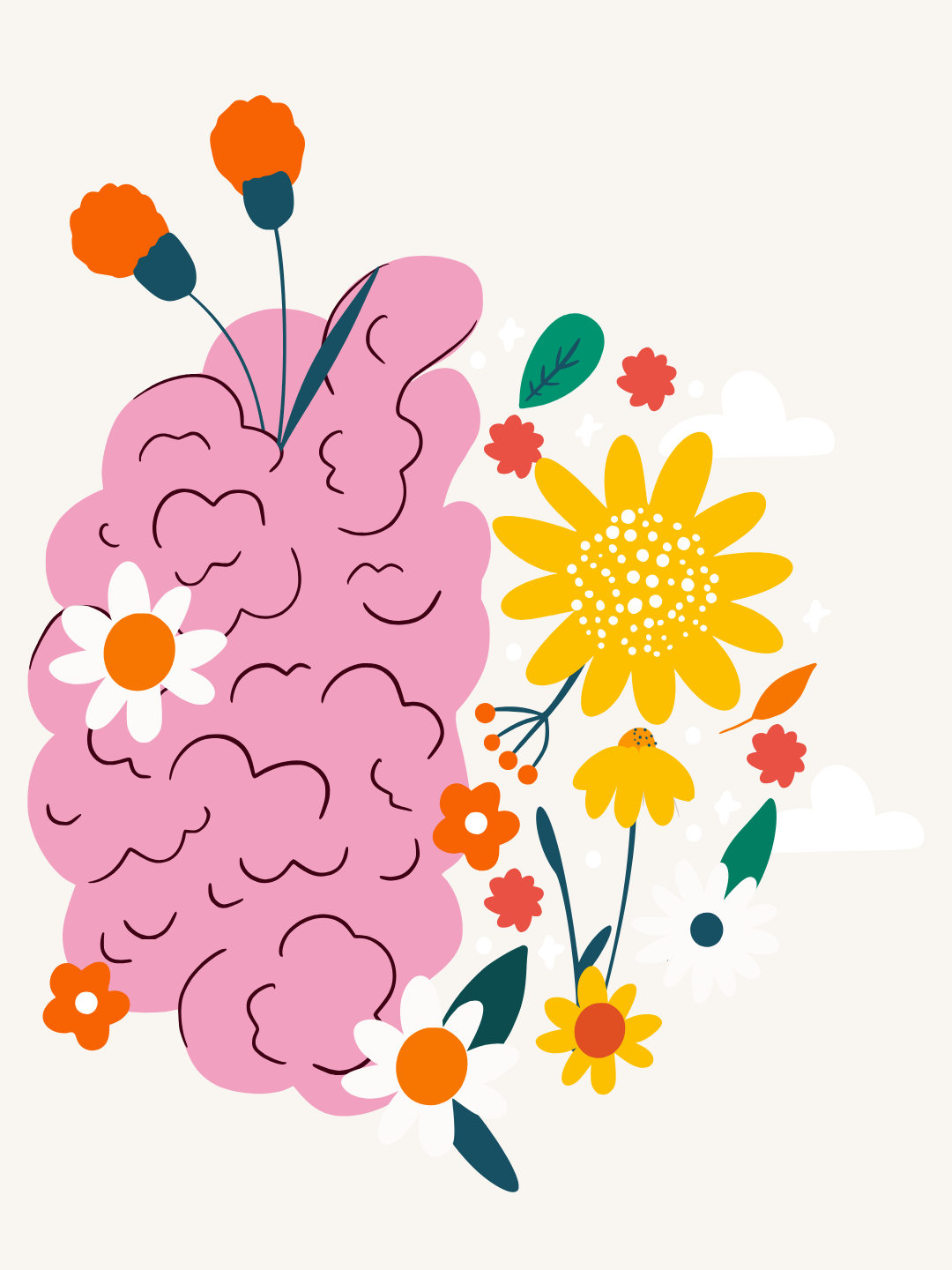Menopause is a significant life transition for women, typically occurring between the ages of 45 and 55. As hormone levels shift, many women experience a variety of physical and emotional changes, collectively known as the common symptoms of menopause.
From hot flashes and night sweats to mood swings, brain fog, sleep disturbances, anxiety, joint & muscle pain, weight gain & slowed metabolism, tinnitus and vaginal dryness, these symptoms can impact daily life in unexpected ways. Understanding the common symptoms of menopause is key to managing this phase with confidence.
In my previous blog, “What Happens During Menopause,” we covered its definition, an overview of the process, and the three stages: perimenopause, menopause, and post-menopause. Now, let’s shift our focus to the common symptoms that many women experience during this transition, how they manifest, and ways to find relief.
Taking Control – Why Understanding Common Menopause Symptoms Matters

Understanding the common symptoms of menopause isn’t only about preparing for changes but also about feeling empowered to make the best decisions for yourself. It wasn’t until started recognizing these symptoms that I began to feel empowered, not just to prepare for the changes but to make the best decisions for myself.
When I went through perimenopause, I had no idea what was happening. During the early years, I experienced symptoms without fully understanding them. Looking back, I now see that menopause isn’t just a phase you pass through; it’s an opportunity to take control of your health and well-being at a pivotal moment in life. Learning what was happening to my body gave me the confidence to navigate this transition. Once I understood that those strange shifts were part of the menopause journey, I could finally take steps to manage the symptoms rather than be blindsided by them.
Awareness is everything. It allows you to differentiate between what’s normal and when you might need additional support. With this knowledge, I was able to start reducing my discomfort, regain some balance, and make informed choices that improved my overall well-being.
You can also an opportunity to step into your strength. With the right tools, support, and a deeper understanding of your body, you can reclaim your health and embrace this new chapter with resilience and confidence!
1. Hot Flashes and Night Sweats
One of the most common symptoms of menopause are hot flashes and night sweats. Hot flashes are sudden, intense waves of heat that can sweep over your body, often accompanied by sweating and flushed skin. They may last from a few seconds to several minutes and can occur at any time of the day. Night sweats are the nighttime version of hot flashes, and they can disturb sleep, leading to fatigue and irritability the next day.

Many women go through this during perimenopause, and it’s the body’s natural response to hormonal changes. To manage hot flashes and night sweats, wearing light clothing, keeping the room cool, and practicing deep breathing can help. If you’re looking for more in-depth information on managing hot flashes, check out my blog where I dive into how collagen can support your body during menopause and potentially help with reducing the frequency of hot flashes. It’s a great resource for anyone looking for natural ways to ease this common symptom!
2. Irregular Periods

As menopause approaches, many women experience changes in their menstrual cycle, such as lighter, heavier, or irregular periods. Cycles may become shorter or longer, and eventually, menstruation will cease altogether. However, pregnancy is still possible until you’ve gone 12 months without a period, so it’s important to consult a doctor if you’re concerned.
Your body is adjusting to a new rhythm, but the unpredictability can feel overwhelming. Many of my clients have expressed frustration with this phase, wondering if the changes are normal. Rest assured, they are, and part of my role is to help women navigate these shifts.
To cope with irregular periods, maintaining a healthy lifestyle and tracking your cycle can provide some clarity.
3. Vaginal Dryness
Vaginal dryness, often caused by declining estrogen levels, is a common yet under-discussed symptom of menopause. It can lead to itching, discomfort, and pain during intercourse, making intimacy more challenging. In addition, dryness increases the risk of urinary tract infections. Over-the-counter lubricants or vaginal moisturizers can provide relief.
Many women feel embarrassed to talk about this, but it’s important to seek help. You’re not alone, and there are effective ways to manage this discomfort.

4. Mood Changes (Perimenopause & Menopause)

Mood swings, irritability, and even anxiety or depression can arise during menopause due to fluctuating hormone levels. It’s common to feel like you’re on an emotional rollercoaster.
I’ve personally experienced irritability & anxiety (just ask my hubby lol) and it often left me feeling disconnected from myself. Maintaining mental health during this time is essential, and small lifestyle adjustments can make a big difference. Regular physical activity, Pilates or yoga, and mindfulness techniques can help stabilize your mood.
5. Sleep Disturbances (Perimenopause & Menopause)
Sleep disturbances like insomnia or frequent waking are common during menopause, often exacerbated by night sweats and hormonal fluctuations. A lack of restful sleep can lead to fatigue, mood swings, and difficulty concentrating throughout the day.

I know the frustration of lying awake for hours, unable to rest, and feeling the impact the next day. Establishing a nighttime routine made a world of difference for me. Herbal tea, calming practices, and a serene environment helped my body recognize it was time to rest.
6. Weight Gain and Slower Metabolism (Peri-Menopause through Post-Menopause)

Ah, the infamous menopause weight gain! That weight, particularly around the midsection, becomes harder to mange. Our metabolism naturally slows during this time, making it tougher to maintain or lose weight even with a healthy lifestyle. It’s frustrating, but manageable. I’ve learned that consistency with a low glycemic diet, regular physical activity and rituals to reduce stress aka cortisol are key. It’s about taking care of your body as it changes and finding ways to stay active that you enjoy. Whether it’s walking, Pilates, yoga, or strength training, all helps with bone health!
As a wellness practitioner, I encourage my clients to focus on small, sustainable changes that have long-lasting effects. If you’re looking for practical tips to mange menopause weight gain, be sure to check out my free Menopause Weight Loss Tips for easy-to-implement strategies that will keep you on track towards feeling strong and healthy during this transformative phase.
7. Decreased Libido (Perimenopause & Menopause)
Changes in sexual desire are also very common during menopause, and it’s completely okay. There are a lot of factors that play: hormonal shifts, vaginal dryness, and emotional changes. I found that open communication with your partner is crucial. If you’re not comfortable or things don’t feel the way they used to, let your partner know.

There are also ways to reignite intimacy and connect in new ways during this phase, and if needed, don’t hesitate to seek advice from a healthcare professional.
8. Joint and Muscle Pain (Perimenopause through Postmenopause)

Menopause took me by surprise with the stiffness and aches I started to feel in my joints. My neck, knees, hips, and even my lower back felt like they were aging faster than the rest of me. This is due to the drop in estrogen, which plays a role in maintaining bone density and joint health. What helped was staying active – pilates, daily stretching, and strength training to keep those joints mobile. Staying consistent can make a world of difference in how you feel.
9. Memory Problems and Difficulty Concentrating (Perimenopause & Menopause)
Menopause-related “brain fog” involves memory lapses, difficulty concentrating, and mental sluggishness, often due to fluctuating estrogen levels. While typically temporary, these cognitive challenges can feel frustrating and disruptive to daily life. Fortunately, symptoms usually improve as hormone levels stabilize, and lifestyle adjustments like stress management, good sleep, and a healthy diet can help.
I’ve experienced moments where I forgot simple tasks or struggled to stay focused. It can feel discouraging! Reducing stress, eating a low glycemic diet and staying mentally active through reading, journaling, or puzzles helped me regain clarity. For more tips on recognizing and reducing stress, check out my blog on the six major types of stress and how to manage each one!

10. Hair and Skin Changes (Menopause & Post-Menopause)
During menopause, hormonal changes can cause hair thinning and reduced skin elasticity, leading to dryness and wrinkles. Staying hydrated, eating nutrient-rich foods, and using gentle, moisturizing skincare products can help manage these effects. A consistent routine with collagen-boosting products and scalp care can further support skin and hair health.
I noticed my hair becoming drier and my skin less firm, but focusing on proper nutrition and hydration made a difference. I learned to embrace these changes and care for my body in new ways.
By understanding these common menopause symptoms and how to manage them, you can take control of your journey with confidence and grace. Remember, you are not alone in this transition—there are tools, resources, and support available to help you navigate it with ease.
Don’t hesitate to reach out to me for personalized advice, and take the first step towards embracing this powerful phase of life!
P.S. Take control of your menopause journey with my carefully curated supplements! From boosting metabolism and balancing hormones to improving sleep and managing weight, these supplement packs are designed to support your unique needs. I’ve handpicked the best vitamins, minerals, and wellness solutions to help you feel your best every day!


+ show Comments
- Hide Comments
add a comment